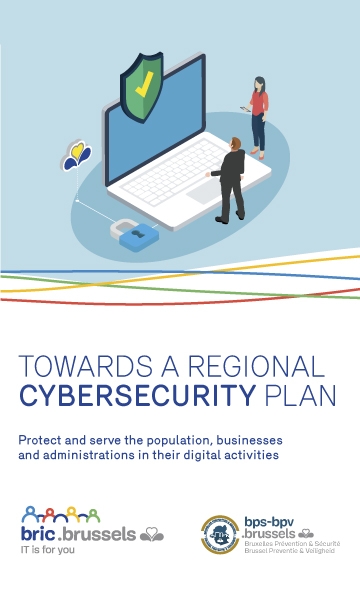Smart cities are very much concerned by the various risks that affect cybersecurity, such as attacks, incidents, etc. In order to meet these challenges, the Brussels-Capital Region is preparing a regional plan to identify, prevent and ward off risks, and if necessary recover from them.
Smart cities are facing increasing cybersecurity risks. They make full use of the innovative potential of digital technologies to supply better services to their citizens, enterprises and administrations. However, connected data and networks has a price: security.
A solid Smart City cybersecurity strategy
The news is positively teeming with accounts of such attacks, malicious acts or even human errors. The consequences can be severe: in 2008, a young hacker was able to enter the public-transport network of a Polish city and derailed a number of trams, injuring several people in the process.
Increasing use of these technologies therefore requires that smart cities adopt a solid cybersecurity strategy. This is the aim of two Brussels-based bodies, the Brussels Regional Informatics Centre (BRIC) and Brussels Prevention & Security (BPS).
Critical infrastructure concentration
As a smart city, the Brussels-Capital Region is also exposed to such risks. It comprises many critical infrastructures related to a wide range of public services. Although some, such as security, finance, health, etc., may be targeted more than others by cybercriminals, all are exposed to potential information-system failures.
For this reason, the BRIC and BPE organised a symposium on “Cybersecurity, a regional issue” on 20 September 2018, which highlighted cybersecurity issues at the regional level. In connection with this event, they also published a paper on “Towards a regional cybersecurity plan”, which provides a description of current cyberthreats and proposes a methodological framework to respond to them.
Easy, safe use of digital tools and networks
The paper reminds us in its conclusion that “ The virtual world must not be any less secure than the real world. It is the responsibility of the public authorities to introduce frameworks and take the necessary actions to ensure digital tools and networks – and the data contained on them – are secure and function smoothly. There is a need to create a trusting environment where everyone can benefit from the best technologies have to offer, in the knowledge that their privacy and data, particularly their personal data, are effectively protected against accidents and against cybercriminals.”
